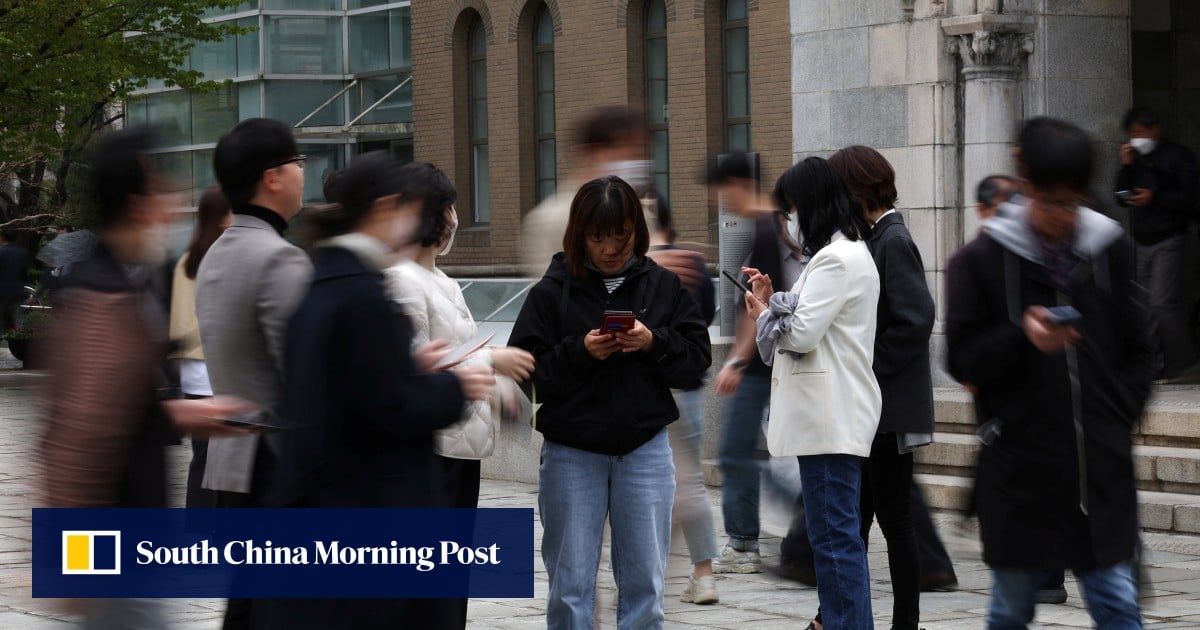- cross-posted to:
- brainworms@lemm.ee
Latest move to tighten regulation comes amid soaring use of algorithms for content recommendation, e-commerce and gig work distribution
Tech operators in China have been given a deadline to rectify issues with recommendation algorithms, as authorities move to revise cybersecurity regulations in place since 2021.
A three-month campaign to address “typical issues with algorithms” on online platforms was launched on Sunday, according to a notice from the Communist Party’s commission for cyberspace affairs, the Ministry of Industry and Information Technology, and other relevant departments. The campaign, which will last until February 14, marks the latest effort to curb the influence of Big Tech companies in shaping online views and opinions through algorithms – the technology behind the recommendation functions of most apps and websites.
System providers should avoid recommendation algorithms that create “echo chambers” and induce addiction, allow manipulation of trending items, or exploit gig workers’ rights, the notice said.
They should also crack down on unfair pricing and discounts targeting different demographics, ensure “healthy content” for elderly and children, and impose a robust “algorithm review mechanism and data security management system”.
Tech companies have been told to “conduct in-depth self-examination and rectification to further improve the security capabilities of algorithms” by the end of the year.


Full text
China sets deadline for Big Tech to clear algorithm issues, close ‘echo chambers’
Latest move to tighten regulation comes amid soaring use of algorithms for content recommendation, e-commerce and gig work distribution
Tech operators in China have been given a deadline to rectify issues with recommendation algorithms, as authorities move to revise cybersecurity regulations in place since 2021.
A three-month campaign to address “typical issues with algorithms” on online platforms was launched on Sunday, according to a notice from the Communist Party’s commission for cyberspace affairs, the Ministry of Industry and Information Technology, and other relevant departments.
The campaign, which will last until February 14, marks the latest effort to curb the influence of Big Tech companies in shaping online views and opinions through algorithms – the technology behind the recommendation functions of most apps and websites.
System providers should avoid recommendation algorithms that create “echo chambers” and induce addiction, allow manipulation of trending items, or exploit gig workers’ rights, the notice said.
They should also crack down on unfair pricing and discounts targeting different demographics, ensure “healthy content” for elderly and children, and impose a robust “algorithm review mechanism and data security management system”.
[embedded video "China’s delivery drivers pushed to the brink by food app algorithms"]
Tech companies have been told to “conduct in-depth self-examination and rectification to further improve the security capabilities of algorithms” by the end of the year.
In January, relevant departments will begin inspecting the “self-examination situation” of the companies and “organise technical forces to verify and supervise rectification” of companies that do not meet standards.
Central and local information technology units will then review the impact of the campaign and assess the country’s overall algorithm regulation framework for further improvements by mid-February.
They will also “analyse difficulties and issues and develop pragmatic measures for a certain period ahead”, the notice said.
China’s digital economy – dominated by giants like Tencent, Alibaba Group Holding, Meituan and JD.com – and social media platforms like ByteDance’s Douyin have grown rapidly in the past decade. Alibaba owns the South China Morning Post.
The soaring use of algorithms for online functions, ranging from content recommendation and e-commerce to work distribution among delivery workers has prompted Beijing to step up regulation.
In March 2022, six months after issuing a set of guiding principles for the industry, internet watchdog the Cyberspace Administration of China (CAC) released an extensive regulatory framework for recommendation algorithms.
The move aimed to curb both the use and misuse of such algorithms, in areas ranging from gaming to activities that might endanger national security or disrupt social order.
Tech companies were told to “promote positive energy” and allow users to decline personalised recommendations offered by their platforms.
Most of those requirements were repeated in Sunday’s notice, including protecting gig workers employed by on-demand service platforms, such as delivery drivers who may be pressured to break traffic rules to meet tight deadlines set by algorithms.
According to the CAC, the regulations issued in 2022 were also expected to help authorities clamp down on content recommendations, which had the potential of “shaping public opinion” or “social mobilisation”.
I found a YouTube link in your comment. Here are links to the same video on alternative frontends that protect your privacy: